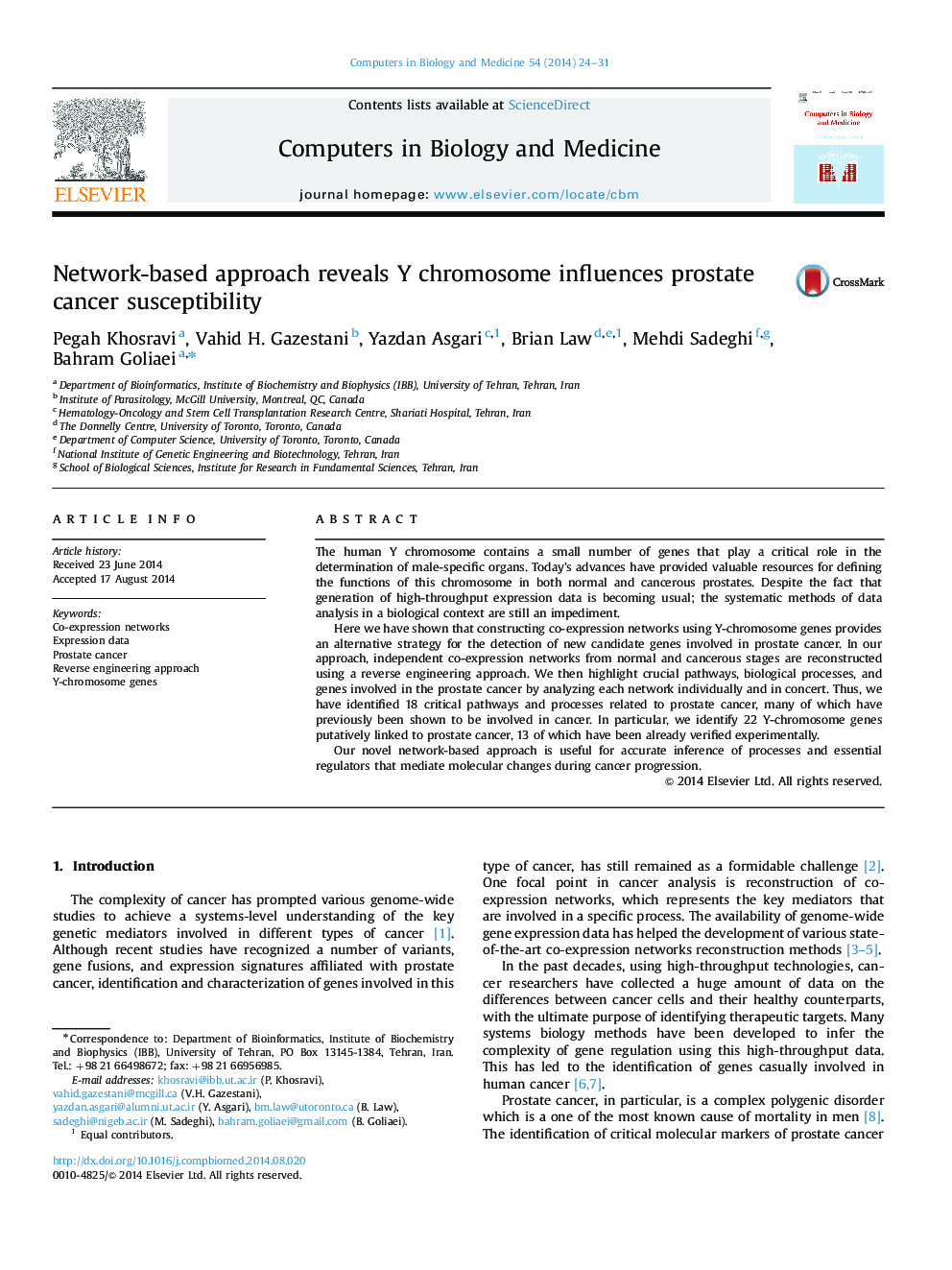| Article ID | Journal | Published Year | Pages | File Type |
|---|---|---|---|---|
| 504900 | Computers in Biology and Medicine | 2014 | 8 Pages |
•We developed an integrative network-based framework for prostate cancer.•We examined the role of Y-chromosome genes through different states.•The new definition of modulation score is proposed for detecting novel pathways and processes.•Candidate genes are introduced for future research in the field of cancer studies as key factors.
The human Y chromosome contains a small number of genes that play a critical role in the determination of male-specific organs. Today’s advances have provided valuable resources for defining the functions of this chromosome in both normal and cancerous prostates. Despite the fact that generation of high-throughput expression data is becoming usual; the systematic methods of data analysis in a biological context are still an impediment.Here we have shown that constructing co-expression networks using Y-chromosome genes provides an alternative strategy for the detection of new candidate genes involved in prostate cancer. In our approach, independent co-expression networks from normal and cancerous stages are reconstructed using a reverse engineering approach. We then highlight crucial pathways, biological processes, and genes involved in the prostate cancer by analyzing each network individually and in concert. Thus, we have identified 18 critical pathways and processes related to prostate cancer, many of which have previously been shown to be involved in cancer. In particular, we identify 22 Y-chromosome genes putatively linked to prostate cancer, 13 of which have been already verified experimentally.Our novel network-based approach is useful for accurate inference of processes and essential regulators that mediate molecular changes during cancer progression.
